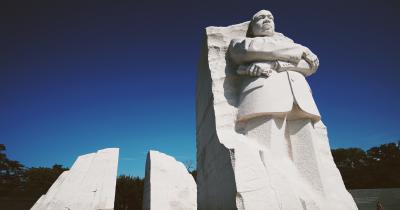
Black History Month: What Black People Teach Us About History
How controlling the historical narrative is a tool of the oppressor and learning the truth of how history actually unfolded is an act of resistance

Each year, Black History Month reminds us to do something we rarely do as a society: remember (or learn for the first time) and reflect on the truly breathtaking contributions of Black people over the centuries. Many outlets do a beautiful job of cataloging some of these contributions, including several of my colleagues here on this blog.
However, beyond surfacing stories and celebrating accomplishments of a remarkable people, each year Black History Month also posits a subtler but no less important proposition: controlling the historical narrative is a tool of the oppressor, learning the truth of how history actually unfolded is a powerful act of resistance, and we must understand that true history if we are ever to be free. Indeed, marginalized peoples—and Black Americans in particular—offer up this truth every month, year after year. Yet it’s a lesson that has proven particularly difficult for white people to grasp.
As a white person growing up in the United States, not only was I not taught Black history—or any history other than a grossly distorted portrait of white European and American accomplishments—I also was not taught to appreciate or seek to understand how decisions made and actions taken years before shape the reality I live today. Growing up, I learned to bring an ahistorical approach to everything I saw and experienced. In addition to enabling me to see myself as a unique individual who, through my own hard work and determination alone, had earned and certainly deserved everything I had, this lesson was convenient for another reason: it contributed to a sense of helplessness—even to an abdication of responsibility—in the face of systemic injustices.
I remember when I finally started connecting the dots about why the Black community in my Southern town lived on the other side of the railroad tracks, why my Black classmates weren’t in any of my advanced placement classes, why I didn’t see many Black people in positions of leadership. I couldn’t imagine what contributing to righting these inequities could look like. I felt completely overwhelmed and practically paralyzed.
It was only after I started learning about the mountains moved by Black organizers during the Civil Rights Movement, by immigrant farmworkers in the 60s and 70s, by Black feminists throughout history, that I began to understand that we could challenge the entrenched white supremacist power structures and to see a path to doing so. Unsurprisingly it was Black organizers and elders who helped me make these connections, learn this history, and envision a way to a more just future.
When we heed the lesson offered by Black people throughout history—to abandon the ahistorical approach and learn the true history of our movements—not only do we uncover strategies and tactics with direct relevance for our contemporary struggles for justice, we also draw hope that the future can be different and understanding that it is our organizing today, rooted in lessons from history, that will make it so.
This year, with our world poised at the precipice, Black History Month again reminds me: in addition to celebrating a strong, creative, and resilient people, to truly honor Black History, we must actually study it—along with the honest accounting of all our histories—year-round. And we must apply these lessons as if our lives depend on it.
About the Series
Since 1976, the United States has designated February as Black History Month to honor the often overlooked achievements of black Americans throughout the country’s history. Demos is honoring Black History Month by highlighting reflections from some of our staff. We welcome you to join the conversation by sharing your thoughts with us on social media using #blackhistorymonth.

